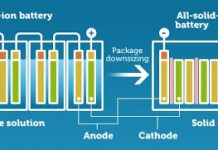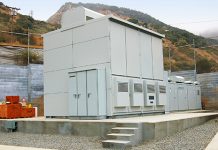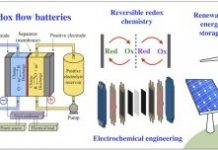by Debra Fiakas CFA
Last month BioSolar (BSRC: OTC/PK) reported positive test results for its proprietary energy storage technology. The company is developing an alternative anode material for lithium ion batteries using silicon-carbon materials. BioSolar’s engineers are targeting dramatic improvement in anode performance and equally impressive reductions in cost. If they are successful, it could mean longer lithium ion battery life, greater capacity and shorter charging time – the dreams of every manufacturer with an electronic product.
Most lithium ion batteries rely on graphite for the battery anode. However, silicon anodes could offer as much as ten times more capacity as anodes made with graphite. Unfortunately, silicon has a few downsides that make it unreliable as well as unaffordable. BioSolar is working to overcome those downsides and make silicon anodes an affordable alternative by using a silicon alloy.
Biosolar is also working on the other important battery component – the cathode. Existing lithium ion batteries are limited by the capacity of the cathode. The company has developed a new cathode made from a conductive polymer that can withstand higher charge-discharge cycles. This would extend the life of the lithium ion battery and lower the overall cost of operation. In June 2017, the company filed an application for patent protection of its proprietary process and material for high capacity cathodes.
The company is not alone in the quest for a better lithium ion battery. There are others experimenting with polymers and silicon-based materials for lithium ion energy storage. For example, researchers at the University of Leeds in the United Kingdom, Lawrence Berkeley National Laboratory in California, Wuhan University of Technology in China, and Pacific Northwest National Laboratory in Washington are just four of several research and development groups publishing papers on their experiments with conductive polymers. The activity could be a source of competition, support or distraction for BioSolar. For example, the University of Leeds has licensed its technology to privately held Polystor Energy Corporation in the U.S., which planned to commercialize the Leeds polymer gel for use as the electrolyte in a lithium ion battery. While Polystor would not have competed against BioSolar’s anode or cathode materials, its progress or lack of progress could have an impact on investors’ view of polymer technology in the energy storage sector.
BioSolar’s research and development efforts are led by its Chief Technology Officer, Dr. Stanley Levy. With a dozen patents in his own name, Levy has been recognized by his peers for technical work on plastics and film development. His prior experience includes stints at DuPont, Global Solar and Solar Integrated Technologies.
Besides the mechanical engineering background of Levy, BioSolar’s chief executive officer, David Lee, brings electrical engineering education and experience to team. Lee founded BioSolar after working in various engineering positions at the electronics, space and defense units of TRW as well as management roles at RF-Link Technology, Inc. and Applied Reasoning, Inc. A plus for BioSolar is Lee’s time in the trenches in marketing and sales, which will be needed to get the company’s technology turned into marketable products.
As a developmental stage company BioSolar has no revenue. Its operations are limited to managing sponsored research activities. BioSolar has received support for its research activities from the University of California at Santa Barbara. For the rest of its work the company relies on cash resources to support its development plans. Operating expenses have been near $600,000 per quarter. One of the company’s most significant expenses is a research arrangement with North Carolina Agriculture and Technical State University, which is conducting tests on BioSolar’s polymer and silicon-alloy materials.
With only $244,776 in its bank account at the end of September 2016, any investor considering a position in BSRC might take pause. Since the close of the September quarter the company entered into an arrangement for an unsecured convertible promissory note for up to $500,000. Nonetheless, expect more capital raising efforts involving dilutive securities of some kind or another. There is really no other way to entice investors to an early stage company than to offer a piece of the pie. The company has not yet found sponsorship by a large investor or strategic partner, so capital raising activities appear to be limited to individual investors.
For investors with no interest in a private placement, there are shares quoted on the Over-the-Counter market. At a nickel, the shares are price like options on management’s ability to reach the development milestone before running out of money. It is a high risk proposition, but one that could yield exceptional returns if BioSolar is successful in getting its materials into a working prototype battery and the market recognizes some value the accomplishment.
Debra Fiakas is the Managing Director of Crystal Equity Research, an alternative research resource on small capitalization companies in selected industries.
Neither the author of the Small Cap Strategist web log, Crystal Equity Research nor its affiliates have a beneficial interest in the companies mentioned herein.








